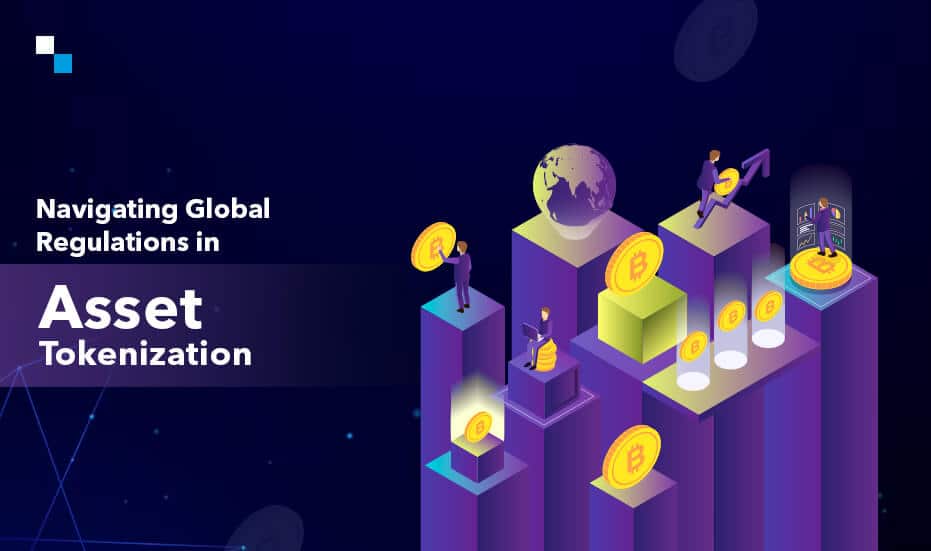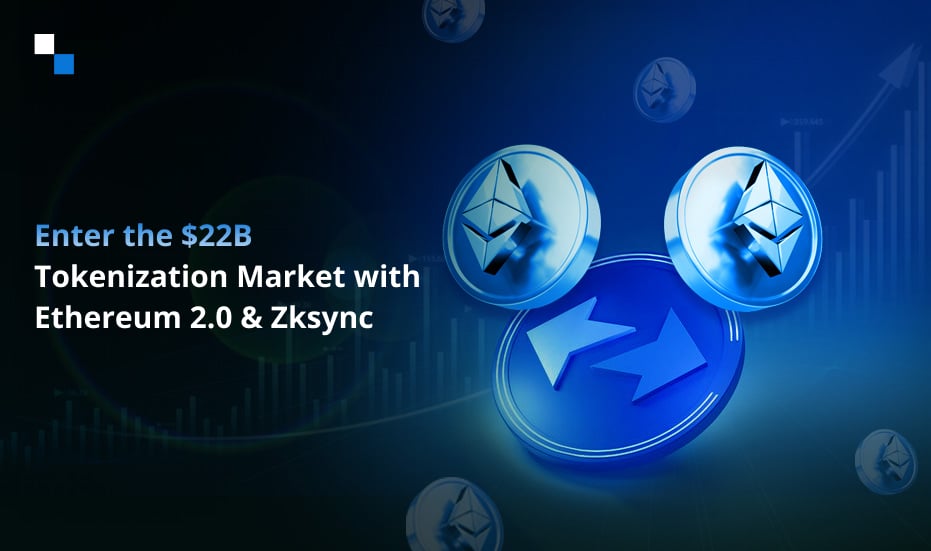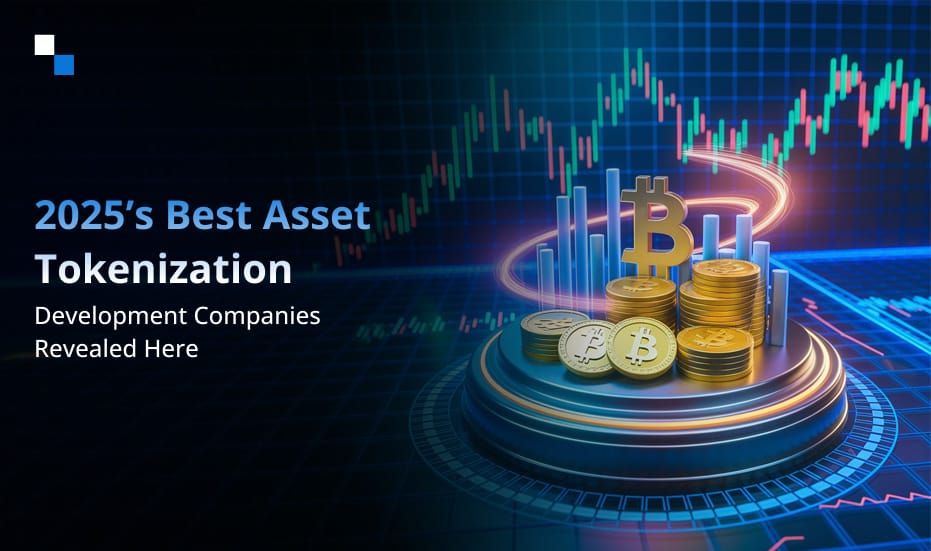
Unfolding The Secrets of ICO Development For Metaverse Gaming
November 17, 2023
Initiate Knowledge Transfer Through the Metaverse Platform for Education
November 17, 2023Asset tokenization, the process of representing real-world assets as digital tokens on a blockchain, has emerged as a transformative technology poised to revolutionize the financial landscape. By democratizing access to a broader range of investment opportunities, asset tokenization holds the potential to enhance market efficiency, liquidity, and transparency. However, the rapid growth of this industry has also raised concerns about regulatory oversight and the need for a harmonized global approach.
The Current Regulatory Landscape
The regulatory landscape for asset tokenization is still evolving, and there is no single, universally accepted regulatory framework. Different jurisdictions have adopted varying approaches, ranging from cautious skepticism to proactive encouragement.
Let’s get into the details:
Switzerland
Switzerland has been at the forefront of developing a regulatory framework for digital asset tokenization. The Swiss Financial Market Supervisory Authority (FINMA) has taken a proactive approach to regulating the issuance, sale, and trading of tokenized assets. FINMA has issued guidance on the classification and treatment of tokenized assets, and it has also established a sandbox environment for testing new tokenization projects. This progressive approach has made Switzerland a hub for asset tokenization innovation.
One of the key features of the Swiss regulatory framework is its focus on risk-based regulation. It means that the regulatory requirements for tokenized assets are tailored to the specific risks associated with each asset. For example, tokenized assets that represent real estate may be subject to different regulatory requirements than tokenized assets that represent securities. The approach helps to ensure that tokenized assets are regulated in a way that is proportionate to the risks they pose.
FINMA has also taken a flexible approach to regulation, recognizing that the asset tokenization space is still evolving. The regulator is open to new and innovative approaches to tokenization, and it is committed to adapting its regulatory framework as needed. This flexibility is essential for supporting innovation and ensuring that Switzerland remains a competitive jurisdiction for asset tokenization.
Singapore
Singapore has also emerged as a leader in the development of asset tokenization regulations. The Monetary Authority of Singapore (MAS) has issued a comprehensive set of guidelines for the issuance of security tokens, and it has also established a sandbox environment for testing new tokenization projects. The MAS’s approach to regulation is based on the principle of “same activity, same risk, same regulation.” This means that the MAS applies the same regulatory principles to tokenized assets as it does to traditional securities. This consistent approach provides clarity and certainty for businesses operating in the asset tokenization space.
The MAS has also been proactive in promoting the development of a global market for tokenized assets. The regulator has established a number of initiatives to support collaboration between regulators in different jurisdictions, and it has also been actively engaged in discussions with international organizations, such as the Financial Stability Board (FSB) and the Committee on Payments and Market Infrastructures (CPMI).
Abu Dhabi
Abu Dhabi Global Market (ADGM) has adopted a progressive approach to asset tokenization regulation. The ADGM Financial Services Regulatory Authority (FSRA) has issued a comprehensive framework for the issuance of security tokens, and it has also established a dedicated Digital Securities Exchange (DSX). The FSRA’s approach to regulation is designed to be facilitative and risk-based, and it is focused on promoting innovation and growth in the asset tokenization space.
One of the key features of the ADGM regulatory framework is its focus on investor protection. The FSRA has implemented a number of measures to protect investors from fraud and market manipulation, including requirements for issuers to prepare a prospectus or whitepaper that discloses material information about the asset and the offering. The FSRA has also established a dedicated enforcement team to investigate and prosecute cases of market abuse.

Hong Kong
The Securities and Futures Commission (SFC) in Hong Kong has been actively exploring asset tokenization regulation. The SFC has issued a number of guidance papers on the topic, and it is expected to finalize its regulatory framework for asset tokenization in the near future. The SFC’s approach to regulation is based on the principle of “same activity, same risk, same regulation.” This means that the SFC will apply the same regulatory principles to tokenized assets as it does to traditional securities. This approach is likely to provide clarity and certainty for businesses operating in the asset tokenization space in Hong Kong.
In November 2023, SFC published two circulars providing guidance to intermediaries engaging in tokenized securities-related activities, the Tokenized Securities Circular and the Investment Products Circular. These circulars provide clarity on the SFC’s regulatory expectations for tokenized securities and help to ensure that businesses are compliant with the regulator’s requirements.
The SFC has also been proactive in promoting the development of a global market for tokenized assets. The regulator has established a number of initiatives to support collaboration between regulators in different jurisdictions, and it has also been actively engaged in discussions with international organizations, such as the Financial Stability Board (FSB) and the Committee on Payments and Market Infrastructures (CPMI).
United States
The United States has taken a more cautious approach to asset tokenization regulation. The Securities and Exchange Commission (SEC) has not issued any formal guidance on the topic, but it has stated that it will apply existing securities laws to tokenized assets. This approach has created some uncertainty for businesses operating in the asset tokenization space in the United States.
However, the SEC has also indicated that it is open to new and innovative approaches to asset tokenization. The regulator has established a sandbox environment for testing new tokenization projects, and it has also been actively engaged in discussions with industry participants. It suggests that the SEC may be willing to take a more flexible approach to regulation in the future. In 2023, the United States worked with other regulators to develop a harmonized global regulatory framework for digital assets. The SEC is a member of the Financial Stability Board (FSB) and the Committee on Payments and Market Infrastructures (CPMI). These organizations are working to develop global standards for the regulation of digital assets.
United Kingdom
The United Kingdom has also been cautious in its approach to regulating asset tokenization. The Financial Conduct Authority (FCA) has stated that it will apply existing securities laws to tokenized assets.
The FCA’s wait-and-see approach to regulation is partly due to the fact that the asset tokenization market is still relatively young and evolving. The regulator wants to be sure that it fully understands the risks and opportunities associated with asset tokenization before it develops a formal regulatory framework.
However, the FCA has also indicated that it is open to new and innovative approaches to asset tokenization. The regulator has established a sandbox environment for testing new tokenization projects, and it has also been actively engaged in discussions with industry participants. This suggests that the FCA may be willing to take a more flexible approach to regulation in the future.
In the meantime, businesses operating in the asset tokenization space in the United Kingdom will need to comply with existing securities laws. This includes requirements for disclosure, investor protection, and anti-money laundering (AML).
France
The French Autorité des marchés financiers (AMF) has adopted a risk-based approach to digital asset tokenization regulation. The regulator has issued guidelines on the issuance and sale of security tokens, and it has also established a sandbox environment for testing new tokenization projects. The AMF’s approach to regulation is designed to protect investors from fraud and market manipulation, while also allowing for innovation in the asset tokenization space. The AMF has issued clear and comprehensive guidelines on the issuance and sale of security tokens. This provides businesses with the certainty they need to operate in the asset tokenization space.
The AMF’s approach to regulation is proportionate to the risks associated with different types of tokenized assets. This ensures that businesses are not burdened with excessive regulatory requirements. The AMF is open to new and innovative approaches to asset tokenization. The sandbox environment provides businesses with a safe space to experiment with new tokenization models.
Thailand
The Thai Securities and Exchange Commission (SEC) has been proactive in developing a regulatory framework for asset tokenization. The SEC has issued a framework for the issuance of security tokens, and it has also established a sandbox environment for testing new tokenization projects. The SEC’s approach to regulation is designed to promote the development of a domestic market for tokenized assets, while also protecting investors from fraud and market manipulation.
Thailand’s regulatory framework recognizes digital assets as a distinct asset class, subject to specific regulations and oversight. Businesses operating in the digital asset space, including those involved in asset tokenization, must obtain licenses from the Securities and Exchange Commission (SEC) of Thailand. The SEC closely scrutinizes the issuance and sale of tokenized assets, ensuring compliance with securities laws and investor protection measures. Thailand’s regulatory framework prioritizes investor protection, requiring transparency in disclosures, anti-money laundering (AML) compliance, and measures to prevent market manipulation. Thailand’s proactive approach to asset tokenization regulation has attracted international attention, positioning the country as a leader in Southeast Asia and beyond.
Malaysia
The Securities Commission Malaysia (SC) has been supportive of the development of asset tokenization. The SC has issued guidelines on the issuance and sale of digital assets, and it has also stated that it is open to new and innovative approaches to asset tokenization. The SC’s approach to regulation is designed to foster innovation and growth in the Malaysian capital market. The Capital Markets and Services (Prescription of Securities) (Digital Currency and Digital Token) Order 2019 recognizes digital assets as securities, subject to securities laws and regulations.
Issuers seeking to raise funds through digital token offerings must conduct them through a registered Recognized Market Operators (RMOs) platform. RMOs are subject to stringent licensing and operational requirements. The SC has issued comprehensive guidelines on asset tokenization, outlining requirements for issuers, platforms, and custody providers. The SC has established a framework for licensing and regulating DAXs, ensuring transparency and market integrity in digital asset trading.
Final Words
The regulatory landscape for digital asset tokenization is still evolving, but there is a clear trend towards a more harmonized approach to regulation. This is positive for the industry, as it will provide greater certainty for businesses and investors, and it will help to support the development of a global market for tokenized assets.
Regulators around the world are recognizing the potential benefits of asset tokenization, and they are working to develop regulatory frameworks that will promote innovation and growth in the sector, while also protecting investors from harm. As the regulatory landscape matures, we can expect to see a surge in activity in the asset tokenization space, as businesses and investors take advantage of the opportunities that this new technology offers.
Want to venture into asset tokenization? Consult Antier, the top asset tokenization company that has experience and expertise in building cutting-edge asset tokenization platforms. Get in touch today and get a free consultation!



